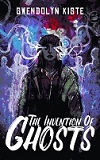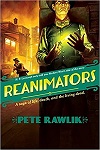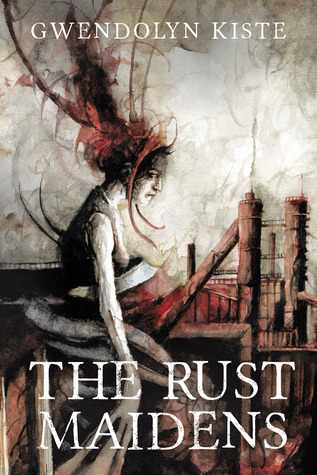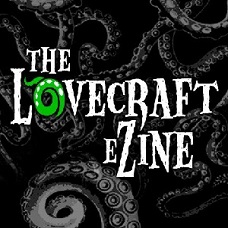I tend to read a lot in the summer and slow down in the fall. The extra sunlight fuels my desire to escape, and books provide the easiest way to slip off to another place for a little while. There’s also no football in the summer. Without further ado, here is a roundup of some of the books I enjoyed this past season.
The Invention of Ghosts by Gwendolyn Kiste

Gwendolyn Kiste is one of my favorite writers, and I was delighted to have gotten the 100th copy of The Invention of Ghosts. The proceeds for this chapbook went to the National Aviary, and the book has fantastic illustrations throughout. Like the previous work I’ve read by Kiste (And Her Smile Will Untether the Universe and The Rust Maidens), the prose is imbued with poetic beauty, and the story contains a moving emotional core. Anyone who has ever had a friend they’ve lost touch with will be wanting to call that person after reading this. It will also get Donovan’s Season of the Witch stuck in your head.
The Only Good Indians by Stephen Graham Jones
By pure chance I happened to watch Deer Woman, an episode of Showtime’s Masters of Horror, not long ago. I was writing a werewolf short story, and I had revisited An American Werewolf in London and happened across Deer Woman as a result. Both works share John Landis as a director, and I should note that Deer Woman is set in the same universe as An American Werewolf in London because the protagonist of Deer Woman references the events of An American Werewolf in London. Anyway, Deer Woman was at least part of the reason why I decided to check out The Only Good Indians, which focuses on similar mythological elements. This novel by Stephen Graham Jones is a lovely, weird romp. Basketball, Native American Reservations, and youth’s sins all factor into why this book is so good. The point of view changes a lot in here, and you even get some chapters from the monster’s perspective. This keeps you feeling uncomfortable and stops you from being able to blindly root for the monster’s demise. These choices by Jones make this book unique.
Reanimators by Pete Rawlik
 For a while, I’d been thinking, why hasn’t anyone done a story that pulls together a bunch of Lovecraft’s connected mythos into a singular tale? Well, I had somehow foolishly missed out on Reanimators existence until recently. The novel weaves the tale of Dr. Stuart Hartwell, a contemporary of Herbert West, as he moves through the years in and around Arkham. In the narrative, Hartwell encounters several of Lovecraft’s most famous characters and even intersects with several of Lovecraft’s best tales. This was a ton of fun to read, and I can’t wait to dive into the sequel. Maybe one day I’ll do a post trying to diagram out all the references and Easter eggs. Indiana Jones even pops up in the text.
For a while, I’d been thinking, why hasn’t anyone done a story that pulls together a bunch of Lovecraft’s connected mythos into a singular tale? Well, I had somehow foolishly missed out on Reanimators existence until recently. The novel weaves the tale of Dr. Stuart Hartwell, a contemporary of Herbert West, as he moves through the years in and around Arkham. In the narrative, Hartwell encounters several of Lovecraft’s most famous characters and even intersects with several of Lovecraft’s best tales. This was a ton of fun to read, and I can’t wait to dive into the sequel. Maybe one day I’ll do a post trying to diagram out all the references and Easter eggs. Indiana Jones even pops up in the text.
Sefira and Other Betrayals by John Langan
I’ve already written pieces on two of John Langan’s previous works, The Fisherman, and The Wide Carnivorous Sky. I loved both of those, and I also enjoyed Sefira. In this collection, some of my favorites were In Paris, in the Mouth of Kronos, The Third Always Beside You, and At Home in the House of the Devil. At Home in the House of Devil was particularly fun because I happened to be writing a paper about Young Goodman Brown while I read it, and there are connections to be made between the two tales. I should also say I’m currently reading John’s latest collection, Children of the Fang and Other Genealogies, which was recently released from Word Horde.
The Croning
Laird Barron weaves an interesting tale of dark fantasy and horror here. I especially loved the opening, which is a retelling of the Rumpelstiltskin story in cosmic horror fashion. The protagonist in this novel has memory problems, to say the least, and that makes the narrative intentionally disjointed, but when the ending comes, it makes all the reader’s disorientation serve a ghoulishly good finale where the secrets are revealed, and the debts must be paid.
Cycle of the Werewolf by Stephen King
 Silver Bullet is one of my favorite horror films of all time. A big part of why I love this movie so much is tied to the fact that I saw it at a young age, but I also think it’s a brilliant gem. The way the movie builds dread as it slowly progresses toward the climax, the excellent performances, and the way the werewolf’s killings impact the small town of Tarker’s Mill combine to make Silver Bullet special. So, it was only a matter of time until I read Cycle of the Werewolf. While I enjoyed the novella, I felt the story worked better as a screenplay. The close bonds between Marty and his sister, and Marty and his uncle, weren’t present in Cycle of the Werewolf, and they’re a major reason why I love Silver Bullet. The story felt hollow without them. Although, the movie didn’t have the stellar art by Bernie Wrightson.
Silver Bullet is one of my favorite horror films of all time. A big part of why I love this movie so much is tied to the fact that I saw it at a young age, but I also think it’s a brilliant gem. The way the movie builds dread as it slowly progresses toward the climax, the excellent performances, and the way the werewolf’s killings impact the small town of Tarker’s Mill combine to make Silver Bullet special. So, it was only a matter of time until I read Cycle of the Werewolf. While I enjoyed the novella, I felt the story worked better as a screenplay. The close bonds between Marty and his sister, and Marty and his uncle, weren’t present in Cycle of the Werewolf, and they’re a major reason why I love Silver Bullet. The story felt hollow without them. Although, the movie didn’t have the stellar art by Bernie Wrightson.
Three other books I read this summer were The Color Out of Time, The Ancestor, and A Cosmology of Monsters, but you can find my thoughts on those tales by checking out the links above. It was an excellent summer for horror. Now here’s to the spooky season.




 Back in October, which feels like a million years ago, I did a short review of Gwendolyn Kiste’s
Back in October, which feels like a million years ago, I did a short review of Gwendolyn Kiste’s 




